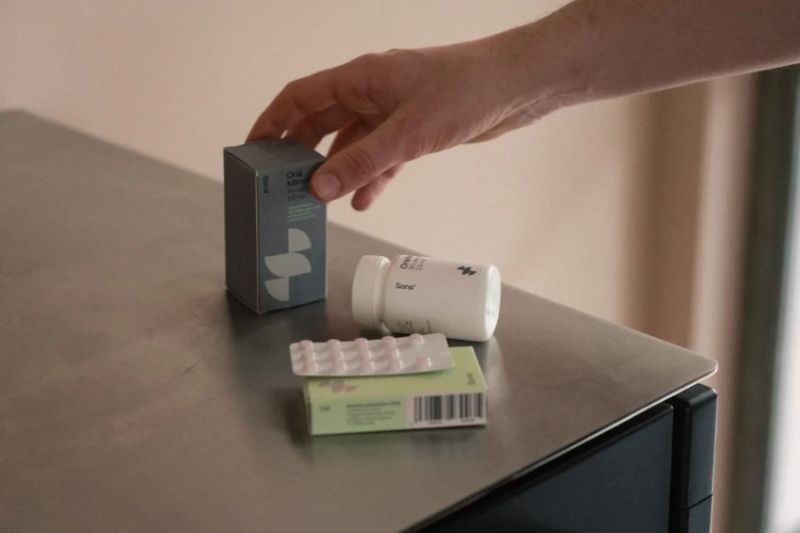Tesco has managed to keep revenues stable at £31.9 billion and push up profits by 6.7% and is planning more from its online and mobile loyalty investments in the coming months, despite a weak market. But the news of Tesco’s turnaround has been overshadowed by the shock departure of CEO Dave Lewis.
The retailer has completed a radical turnaround since Lewis took over in 2014, culling staff and simplifying the range. The company is now well positioned in the UK grocery market. Job done, believes Lewis who has used the results call to announce his departure at the end of the year.
“My decision to step down as Group CEO is a personal one,” he says. “I believe that the tenure of the CEO should be a finite one and that now is the right time to pass the baton. Our turnaround is complete, we have delivered all the metrics we set for ourselves. The leadership team is very strong, our strategy is clear and it is delivering. The Tesco brand is stronger and customer satisfaction is the highest it has been for many years. Colleagues are doing an extraordinary job and their expertise shows in every store and channel every day.”
With the turnaround complete, Tesco is looking at how to grow. “We are in a strong position to generate sustainable growth within our existing capital expenditure allocation of £1.1 billon to £1.4 billion per year,” says Lewis.
This includes growth from stores, online, loyalty and the acquisition of wholesaler Booker. “ As a result of lowering build costs, reducing operating costs and improvements in margin we will: open 750 Express stores in Thailand over the next three years; increase rate of Express store expansion in the UK, opening 150 stores over the next three years and proceed with 4 new superstores in UK & ROI,” says Lewis.
Meanwhile online, the retailers has established a more profitable, increasingly cash generative operating model, and is planning to double online capacity in the UK. It will also be opening three Urban Fulfilment Centres by Summer 2020 – including the first in West Bromwich by March 2020 – as part of its plan to open more than 25 over the next three years.
The retailer is also looking to continue its innovation in loyalty, particularly its Digital Clubcard, Clubcard pricing and more with the introduction of Clubcard Plus in the UK before the end of 2019. It currently has 1.54 million Clubcard app users, up 77% YoY and more than 1.5 million customers are benefiting from Clubcard Prices. The retailer is also looking a its cost to serve model, with 440 billion data points continues to support making the right decisions for customers Equity investment in Trigo frictionless shopping technology and the ‘Scan, Pay, Go’ app is also now available to more 5,000 staff.
With Booker, Tesco is looking at building on the organic growth since merger – which has generated £0.7bn additional sales to date – “and we are announcing the acquisition of the assets and operations of Best Food Logistics for a nominal consideration, adding a further £1.1bn additional foodservice sales,” says Lewis. Best Food Logistics distributes food to customers including Pret a Manger, KFC and Burger King.
As Tesco updates the market with its interim results Commenting on the results, Graham Spooner, Investment Research Analyst at The Share Centre, explains what it means for investors. “Results this morning have been over shadowed by the unexpected news that Dave Lewis is stepping down as CEO next year, with Ken Murphy taking over the reins. With the turnaround plan now complete he feels it is the right time for him to leave with the date set for next summer in order to plan a smooth and orderly succession.”
He continues: “First half revenue met expectations with a 0.6% rise, while adjusted operating profit was slightly ahead at £1.41bn. Investors will be pleased to see the dividend has risen to 2.65 pence from 1.67 pence last time around. One of the main areas of focus has been on group margins which have continued to improve to 3.73%, meeting the target of between 3.5% and 4% by 2020.”
Spooner adds: “The group’s outlook highlights a strong start to the year has been made and despite a challenging market they are well positioned to be highly competitive going forward. The shares have gone against the morning trend for markets with a 2% rise. Investors appear not to be too concerned with the change at the top and are instead concentrating on the solid results. We continue to recommend the shares as a ‘Hold’ for investors willing to accept a medium level of risk.”
However, Angus Burrell, Head of Omni-Channel Solutions at Valitor, warns: “The UK’s biggest supermarket appears to have retained a position in today’s marketplace. But despite this success, Tesco still faces many challenges ahead. With the current uncertainty and worry around Brexit around the corner, and a possible no deal, it is unlikely that things will improve for the retailer before the end of the year. The move to launch its Jack’s brand to compete with Aldi and Lidl has yet to show promise, and the news that it is closing stores, along with the departure of CEO Dave Lewis, should keep alarm bells ringing with investors.”
Burrell concludes: “However, Tesco has demonstrated strengths in other areas. Its Clubcard app, for instance, has kept customers engaged through regular exclusive deals. Investment in this area has enabled Tesco to connect with customers on another level, reaching them digitally and rewarding them for using multiple services such as Tesco Mobile and Tesco Bank. This lock-in of interconnected services could form the foundation for a fightback in 2020. Nonetheless, this could all be undone if Tesco takes its eye off the ball in prioritising the customer experience and the quality of services it provides. This is essential for its success particularly with Brexit possibly leaving shoppers spending less.








